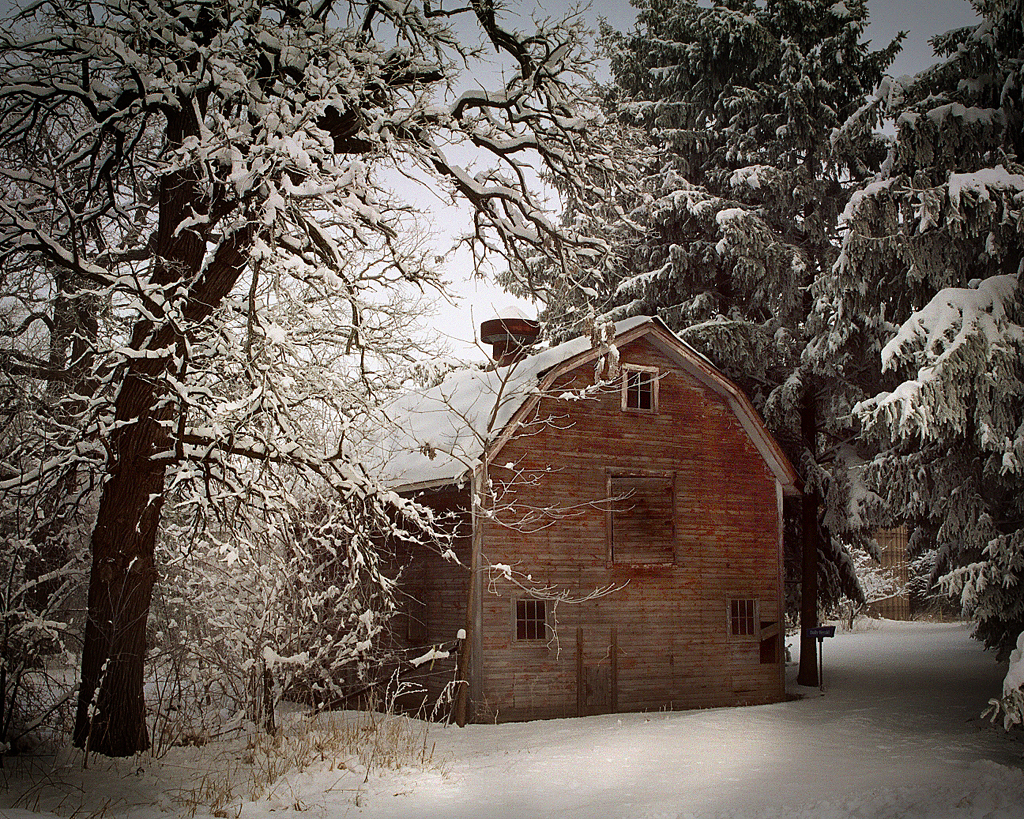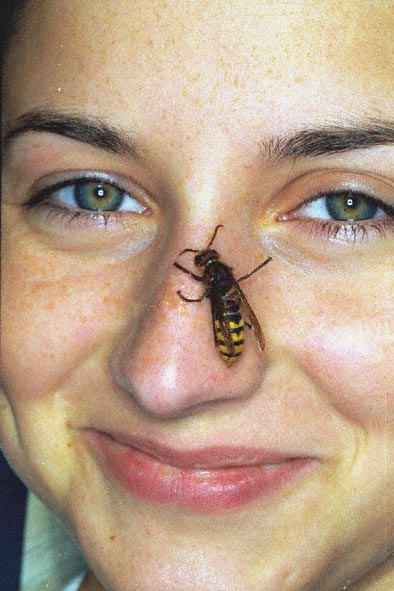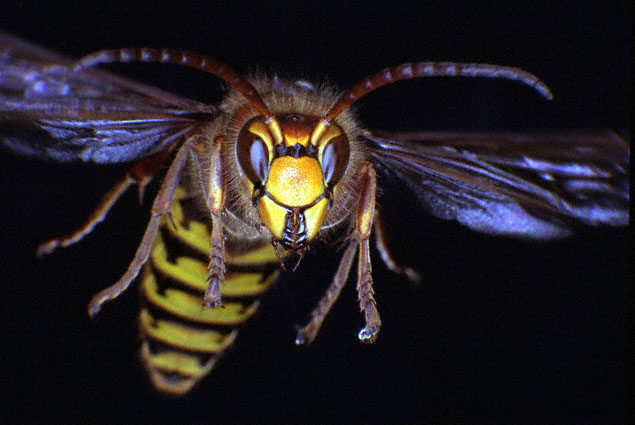-
• #3451



-
• #3452



-
• #3453

Panda Ant by Chris Lukhaup. This guy is my hero. Ex member of a german metal band, explorer and researcher who spends his time looking for new fresh water shrimp in tropical places. Nice guy also.
-
• #3454
...is why ants didn't invent mirrors.
-
• #3455
It's actually technically a kind of velvet ant, i.e. a female wingless wasp (only the females are wingless, I think, and most of the males are winged), not an ant. :)
-
• #3456
Here's another picture in which you can see more clearly that it's a wasp. A quick search reveals the scientific name as *E*uspinolia militaris.

-
• #3457
anty-porn thread
-
• #3458
This.
However, I'm on a bit of a 'there ain't no such thing as a bad photo' bent right now. Or maybe more accurately, 'no-one apart from the photographer has the ability to say a photo is bad' or something.
I like Adams' take on it in The Negative. He says that the perfect neg is one which is exposed, developed and printed such that the photographer's pre-visualised image is realised.
Only the photographer knows what they wanted the image to look like so only they can really say if it's good or bad.
1+ to you kind sir.
You don't need a photography degree to be a photographer.
Definitely agree there. I've had far better results with my smartphone than my Entry-level SLR... don't think it's a matter of skill sometimes, more just a bit of luck with right conditions / good timing etc.
Those 2 shots of the servicemen carrying the coffins are pretty moving I must say..
-
• #3459

Absolutely bloody marvellous
-
• #3460
Here's another one:
I love wasps--I think many of them look very beautiful.


Vespula germanica



Vespa crabro (hornet)
-
• #3461

http://www.youtube.com/watch?feature=player_detailpage&v=tgCiC6qTtjs#t=166s
I think it might even be the same forklift at 2.30
Same hat? (@ 2:46)
-
• #3462
good pick swine any info on the photographers?
-
• #3463
It's actually technically a kind of velvet ant, i.e. a female wingless wasp (only the females are wingless, I think, and most of the males are winged), not an ant. :)
Ants evolved from wasps.
-
• #3464

The NASA/ESA Hubble Space Telescope has been at the cutting edge of research into what happens to stars like our sun at the ends of their lives. One stage that stars pass through as they run out of nuclear fuel is called the preplanetary or protoplanetary nebula stage. This Hubble image of the Egg Nebula shows one of the best views to date of this brief but dramatic phase in a star’s life.
The preplanetary nebula phase is a short period in the cycle of stellar evolution, and has nothing to do with planets. Over a few thousand years, the hot remains of the aging star in the center of the nebula heat it up, excite the gas, and make it glow as a subsequent planetary nebula. The short lifespan of preplanetary nebulae means there are relatively few of them in existence at any one time. Moreover, they are very dim, requiring powerful telescopes to be seen. This combination of rarity and faintness means they were only discovered comparatively recently. The Egg Nebula, the first to be discovered, was first spotted less than 40 years ago, and many aspects of this class of object remain shrouded in mystery.
At the center of this image, and hidden in a thick cloud of dust, is the nebula’s central star. While we can’t see the star directly, four searchlight beams of light coming from it shine out through the nebula. It is thought that ring-shaped holes in the thick cocoon of dust, carved by jets coming from the star, let the beams of light emerge through the otherwise opaque cloud. The precise mechanism by which stellar jets produce these holes is not known for certain, but one possible explanation is that a binary star system, rather than a single star, exists at the center of the nebula.
The onion-like layered structure of the more diffuse cloud surrounding the central cocoon is caused by periodic bursts of material being ejected from the dying star. The bursts typically occur every few hundred years.
The distance to the Egg Nebula is only known very approximately, the best guess placing it at around 3,000 light-years from Earth. This in turn means that astronomers do not have any accurate figures for the size of the nebula (it may be larger and further away, or smaller but nearer).
This image is produced from exposures in visible and infrared light from Hubble’s Wide Field Camera 3.
Credit: ESA/Hubble, NASA
-
• #3465
anty-porn thread
:-D
-
• #3466
I've been reading up on the LA riots today, I found this excellent set of images from the LA times.

Are they both left handed, or is the picture backwards?
-
• #3467
I've been reading up on the LA riots today, I found this excellent set of images from the LA times.
I had assumed they were just for warning people off, but they actually got some heavy use.
[ame="http://www.youtube.com/watch?v=PmsKGhLdZuQ"]Crazy
L.A. Gun Fight Erupts During Riot - YouTube[/ame] -
• #3468
Are they both left handed, or is the picture backwards?
Looks like the Levis patch is on the correct side, would that mean the photo hasn't been flipped?
-
• #3469

-
• #3470
Farmer smoking his own?
-
• #3471
essex joyriders been at it again?
-
• #3472
Battle of the Beanfield?
-
• #3473

Memorial Church, Stanford University library.

Antelope canyon.
-
• #3474
So what's the real story behind the crazy field?
-
• #3475
From the dutch papers:-
A driver under the influence of cocaine led police in a high speed slalom chase all over some poor Dutch farmer’s corn field. Does it go without saying that the Dutch farmer was not happy?
From Reuters:
Police, backed up by a helicopter, eventually managed to corner the 35-year-old driver after he careered into a neighboring orchard and crashed into a ditch.“Shoot out two tires… then the problem is solved,” irate farmer Ad van Schendel told police, according to the Brabants Dagblad newspaper.
Van Schendel said he estimated the damage to his field near the southern town of Dussen last Friday at 7,000-8,000 euros.
 TheorySwine
TheorySwine
 CasaSteve
CasaSteve withered_preacher
withered_preacher Oliver Schick
Oliver Schick William.
William. Rowhan
Rowhan boredom
boredom spotter
spotter Ordinata
Ordinata StandardPractice
StandardPractice Bad_Science
Bad_Science Rosmal
Rosmal adroit
adroit Stu_F
Stu_F gridds
gridds @Crispin_Glover
@Crispin_Glover